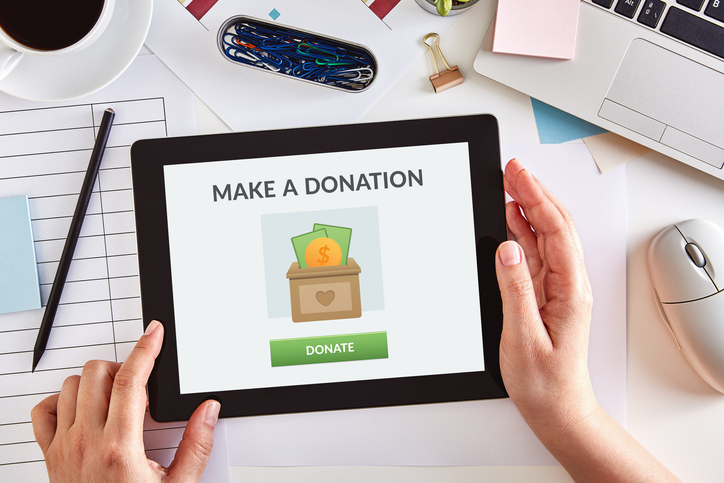Professor discusses how nonprofits have been affected during pandemic
Article body
The COVID-19 pandemic has had a wide impact across virtually every aspect of society, and the nonprofit sector is no different. Kelly Krawczyk, associate professor and Ph.D. program director in Auburn’s department of Political Science, teaches undergraduate and graduate classes on a wide range of nonprofit topics. She described how the coronavirus has affected the nonprofit world and highlighted how its leaders have stepped up to help during the crisis despite their own struggle to survive.
How has the COVID-19 pandemic affected the nonprofit sector?
Many nonprofit organizations went into this emergency without large amounts of reserve funds. And now, the coronavirus pandemic has made their financial situation even more dire. Fundraising events have been cancelled or postponed, and ticket sales are gone. Donors are worried about the economy and, in some cases, have pulled back on giving. Foundations have suffered huge losses to endowments. So, nonprofits are currently struggling to survive financially. Yet at the same time, the needs of those they serve are greater than ever.
How have nonprofits had to adjust their operations models to still help those in need while also staying safe?
Nonprofits have had to transform how they work, and sometimes they’ve had to accomplish this virtually overnight. They’ve had to change how they interact with their stakeholders–the people they serve, their donors and board members. In some cases, they can’t perform their usual work due to closures and social distancing. But some nonprofits are finding ways to shift their work to meet urgent needs. Alabama Appleseed, a nonprofit that works to achieve justice and equity for Alabamians, engages mostly in advocacy activities. Recently, however, they also engaged in direct service delivery, overseeing a Go Fund Me campaign designed to provide soap for inmates in Alabama prisons to help stop the spread of COVID-19 in the prison system.
Can nonprofits apply for federal stimulus aid like businesses, and what help have they received from outside agencies?
Many nonprofits are seeking support in the form of loans, lines of credit and emergency grants. And they do have multiple avenues through which they can receive this assistance. The federal stimulus bill, known as the CARES Act, offers provisions that can help nonprofits: those with 500 or fewer employees are eligible for Small Business Administration loans that can be used for expenses related to employees, facility costs and debt service, and under certain conditions, these loans are forgivable. There also are opportunities for disaster-relief loans from the SBA with favorable terms like low-interest rates and extended payback periods. In addition, there are other avenues available for nonprofits to secure needed resources. Private philanthropic organizations are stepping up as well. For example, Open Road Alliance is offering loans at below-market interest rates to groups adversely affected by the pandemic and has grants and loans available for groups that are helping to slow the growth rate of coronavirus infections. Community foundations also are a source of emergency grants for nonprofits. The Central Alabama Community Foundation, for example, has introduced the Community COVID-19 Relief Fund, which provides grants to nonprofits supporting basic needs and/or health and wellness efforts related to COVID-19.
How can people stay involved with their favorite nonprofits and charities during these challenging times?
First and foremost, donate, donate, donate. This is a time when nonprofits need your financial support more than ever. Nonprofits are also coming up with unique ways to for people to stay connected to them. Refuge Coffee in Clarkston, Georgia, provides coffee-related job and skills training for refugees. They have had to close their two main retail locations, but they developed a campaign called, “Five socially-distanced ways to stay connected with Refuge.” They are asking supporters to do things like order takeout and delivery online, purchase gift cards to use at a later time, buy Refuge-logoed merchandise from their online store and leave a tip for job trainees by donating online to a “virtual tip jar.” They are also taking their mobile coffee truck into local neighborhoods and selling and serving coffee using careful hygiene and social distancing measures. They recently shifted one of their annual fundraisers, the Refuge Market, to an online and “drive-through” experience.
What makes nonprofits well-suited to help during emergency events such as a pandemic?
Nonprofits are embedded in their communities, which means they have close community connections and relationships and detailed and expert knowledge about their communities. They know local needs in a way that government sometimes cannot. Nonprofits can act as civic intermediaries, helping build trust between government and citizens. What might this look like? Nonprofits can lead community responses by reaching vulnerable communities and providing them with information on coronavirus risks and symptoms and how to mitigate them. And, because they don’t answer to stockholders like private businesses, nonprofits have the ability to be more flexible and innovative in the assistance they provide.
Auburn University is a nationally ranked land grant institution recognized for its commitment to world-class scholarship, interdisciplinary research with an elite, top-tier Carnegie R1 classification, life-changing outreach with Carnegie’s Community Engagement designation and an undergraduate education experience second to none. Auburn is home to more than 30,000 students, and its faculty and research partners collaborate to develop and deliver meaningful scholarship, science and technology-based advancements that meet pressing regional, national and global needs. Auburn’s commitment to active student engagement, professional success and public/private partnership drives a growing reputation for outreach and extension that delivers broad economic, health and societal impact.






